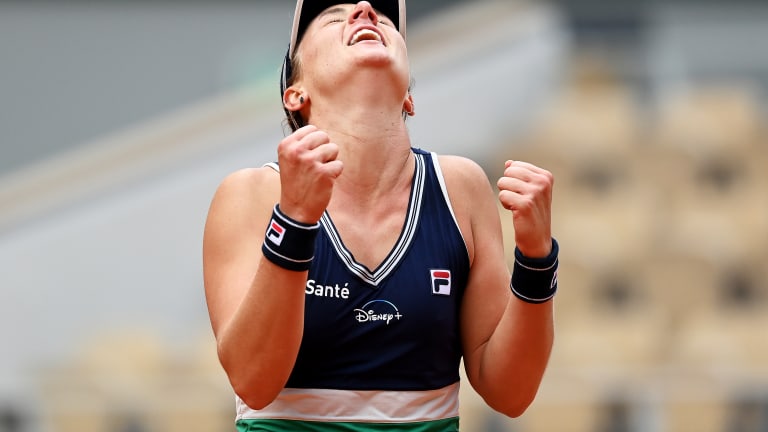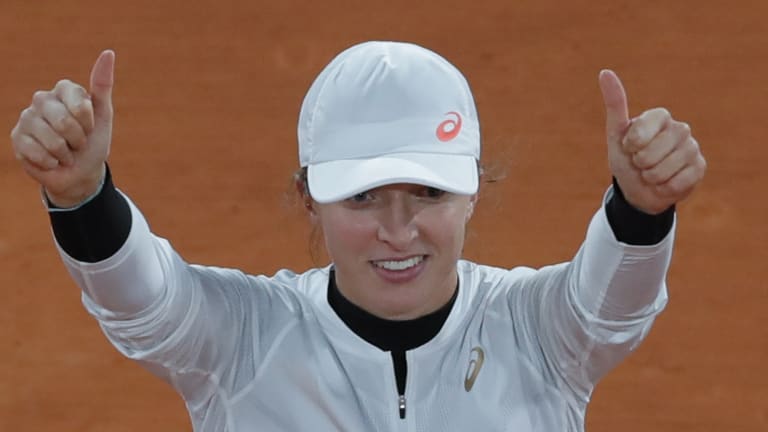Roland Garros
Matters of the mind make the difference for Swiatek, Podoroska
By Oct 06, 2020Roland Garros
FFT to reveal second retractable roof court at Roland Garros ahead of Paris Olympics
By Apr 25, 2024Roland Garros
Roland Garros says tennis fans must have their tickets stored on official tournament app
By Mar 12, 2024Roland Garros
Victor Wembanyama, surefire No. 1 pick in NBA draft, bids adieu to France in game at Roland Garros
By Jun 15, 2023Roland Garros
Analysis: Novak Djokovic has 23 Slams, so is he the GOAT? He leaves that debate to others
By Jun 12, 2023Roland Garros
Novak Djokovic returns to ATP No. 1 with his 23rd Slam title; Iga Swiatek stays at WTA No. 1
By Jun 12, 2023Roland Garros
Novak Djokovic’s 23rd Grand Slam win had all the hallmarks of what brought him to this record-breaking pinnacle
By Jun 11, 2023Roland Garros
Novak Djokovic wins his 23rd Grand Slam title by beating Casper Ruud in the Roland Garros final
By Jun 11, 2023Roland Garros
Where, when and how Novak Djokovic won each of his 23 Grand Slam titles
By Jun 11, 2023Roland Garros
Novak Djokovic moves up the list of most Grand Slam titles in tennis history with No. 23
By Jun 11, 2023Roland Garros
Matters of the mind make the difference for Swiatek, Podoroska
On Tuesday, the 19-year-old consolidated her win over top-seeded Simona Halep with a straight-set victory over Trevisan at Roland Garros
Published Oct 06, 2020
Advertising

Matters of the mind make the difference for Swiatek, Podoroska
© Getty Images
Advertising

Matters of the mind make the difference for Swiatek, Podoroska
© Copyright 2020 The Associated Press. All rights reserved
Advertising

Matters of the mind make the difference for Swiatek, Podoroska